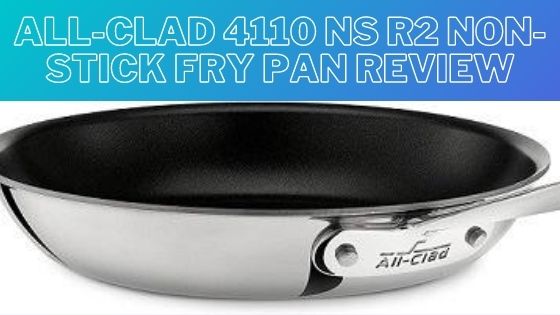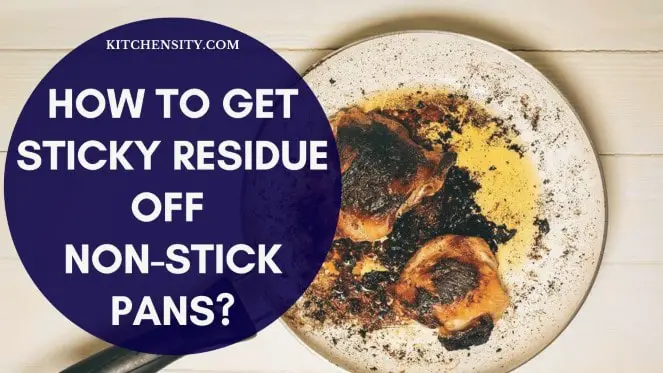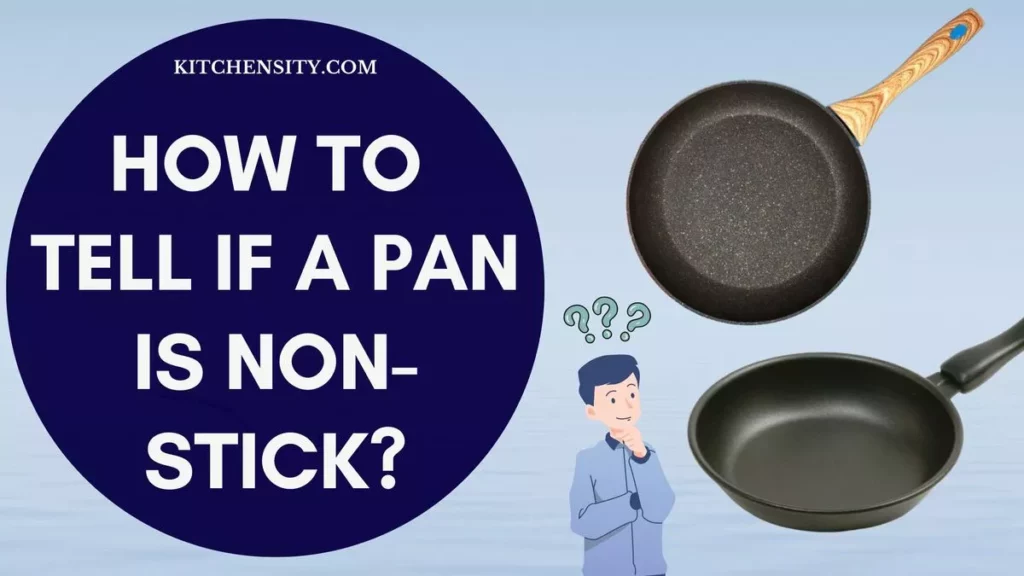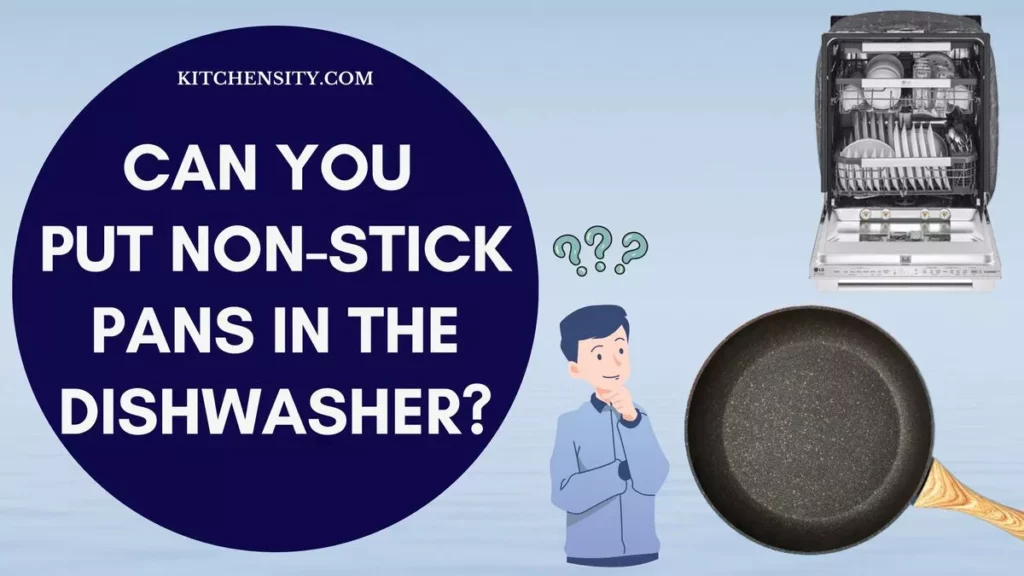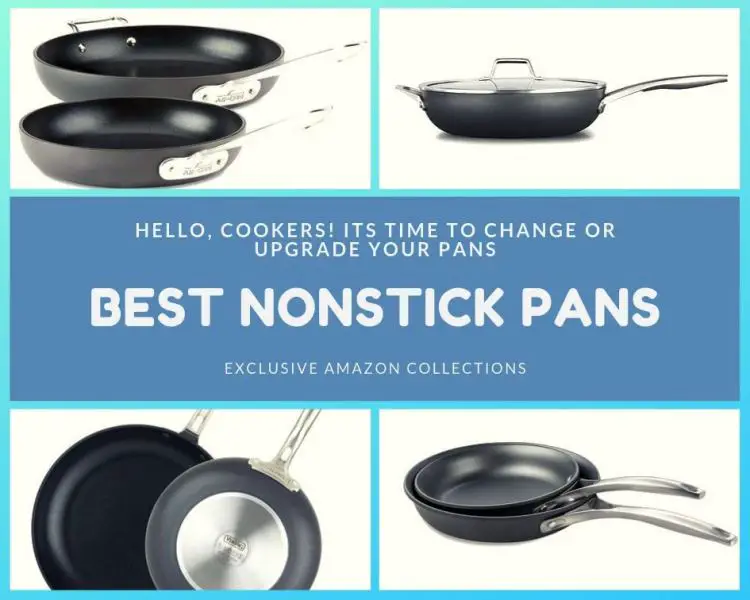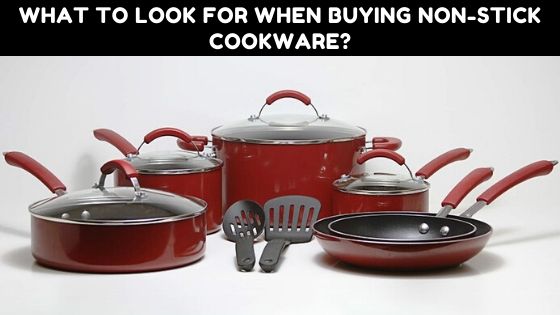Have you ever heard that using vinegar on non-stick pans can ruin them?
It’s a common question that many home cooks have, and the answer isn’t always clear-cut.
Some say that vinegar is perfectly safe to use on non-stick pans, while others caution against it.
In this article, we’ll dive into the question of whether vinegar ruins non-stick pans and explore some of the science behind it.
So if you’ve been wondering whether it’s safe to use vinegar on your favorite non-stick cookware, keep reading to find out the truth.
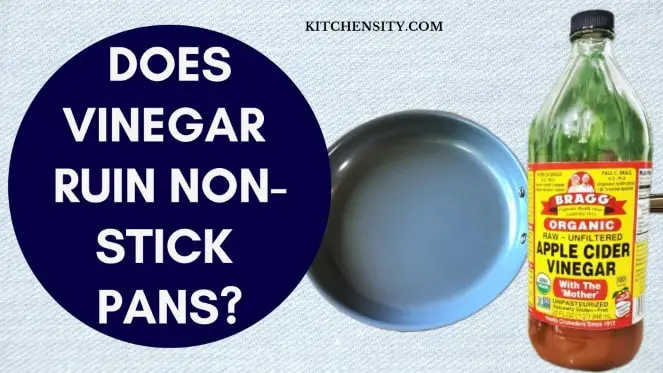
Table of Contents
- 1 Does Vinegar Ruin Non-Stick Pans?
- 2 What Are Non-Stick Pans?
- 3 Cleaning Non-Stick Pans With Vinegar
- 4 Benefits And Risks Of Using Vinegar To Clean Non-Stick Pans
- 5 Is Vinegar Bad For Non-Stick Pans?
- 6 What Metals Does Vinegar Damage?
- 7 What Should You Not Use White Vinegar On?
- 8 Conclusion
- 9 You May Also Like
- 10 FAQs
Does Vinegar Ruin Non-Stick Pans?
The answer to whether vinegar ruins non-stick pans is not a simple yes or no. While some sources suggest that vinegar can damage the non-stick coating on pans, others argue that it’s perfectly safe when used properly. It’s important to use vinegar with caution and to test it on a small area first.
With proper care, you can keep your non-stick pans looking and performing their best for years to come. Read below to know about the benefits and risks of using vinegar.
What Are Non-Stick Pans?
Non-stick pans are a type of cookware that has a special coating designed to prevent food from sticking to the surface.
This coating is typically made of polytetrafluoroethylene (PTFE), also known as Teflon, which is a type of plastic.
Non-stick pans are popular among home cooks because they make cooking and cleaning easier.
Also Read – How To Fix Scratched Non-Stick Pans?
How Do Non-Stick Pans Work?
Non-stick coatings work by creating a barrier between the food and the metal surface of the pan.
The coating is hydrophobic, which means it repels water and other liquids. When you cook with a non-stick pan, the food essentially sits on top of the coating, allowing it to cook evenly without sticking.
The non-stick coating is also heat-resistant, so it can withstand high temperatures without breaking down or releasing harmful chemicals.
However, it’s important to note that non-stick coatings can still be damaged by scratches or other types of wear and tear, which can cause them to lose their non-stick properties over time.
- Non-stick pans work by creating a barrier between the food and the surface of the pan.
- The coating on the pan prevents the food from sticking, which makes it easier to cook and clean up.
- The surface of the pan is also designed to distribute heat evenly, which helps prevent hot spots that can burn food.
Cleaning Non-Stick Pans With Vinegar
Vinegar is a common household item that can be used to clean non-stick pans effectively.
However, many people are unsure of how to clean them without damaging the non-stick coating.
Preparing To Clean Your Non-Stick Pan With Vinegar:
Before you start cleaning your non-stick pan with vinegar, there are a few things you need to do to prepare:
- Gather your supplies. You’ll need a soft sponge or cloth, white vinegar, and water.
- Ensure that your non-stick pan is cool to the touch before cleaning it.
- Remove any excess food or debris from the pan.
Also Read – How To Remove The Non-Stick Coating From Cookware?
Step-By-Step Guide To Cleaning Non-Stick Pans With Vinegar:
- Mix one part water and one part white vinegar in a spray bottle.
- Shake the bottle to mix the ingredients properly.
- Spray the mixture onto the non-stick pan.
- Let the mixture sit on the pan for about 5-10 minutes.
- Use a soft sponge or cloth to gently scrub the pan, paying extra attention to any areas with stubborn stains.
- Rinse the pan with warm water.
- Dry the pan with a soft towel.
Additional Tips for Cleaning Non-Stick Pans:
- Never use steel wool or abrasive cleaners on non-stick pans as they can scratch and damage the surface.
- Avoid using harsh chemicals such as bleach or ammonia, which can also damage the non-stick coating.
- If the vinegar solution doesn’t remove all of the stains, try adding a small amount of baking soda to the mixture and scrubbing again.
- To prevent future stains, avoid using high heat with your non-stick pan and use plastic, silicone, or wooden utensils instead of metal.
Also Read – Best Non-Stick Cookware Brands
Benefits And Risks Of Using Vinegar To Clean Non-Stick Pans
BENEFITS
Using vinegar to clean non-stick pans can offer several benefits. Here are some of the advantages:
- Natural And Non-Toxic: Vinegar is a natural, non-toxic cleaning agent that is safe for you and the environment. Unlike some harsh chemicals, vinegar won’t leave behind any harmful residues on your cookware.
- Affordable: Vinegar is an inexpensive cleaning solution that is readily available in most households.
- Effective: Vinegar has acidic properties that help to break down stubborn stains and residue on non-stick pans, making them easier to clean.
- Versatile: Vinegar can be used to clean a variety of surfaces, including non-stick pans. It can also be mixed with other natural cleaning agents like baking soda and lemon juice to create even more cleaning power.
- Easy To Use: Cleaning non-stick pans with vinegar is a simple process. All you need is some vinegar, water, and a soft sponge or cloth.
Overall, using vinegar to clean non-stick pans can be an effective, affordable, and eco-friendly option.
However, it’s important to use it with caution and to avoid using it on damaged or scratched non-stick surfaces.
Also Read – What To Look For When Buying Non-Stick Cookware?
RISKS
While using vinegar to clean non-stick pans has several benefits, there are also some risks associated with it.
Here are some potential risks of using vinegar to clean non-stick pans:
- Damaging The Non-Stick Coating: Vinegar is acidic, and using it on non-stick pans can damage the coating over time, especially if the pan has scratches or chips on the surface. This can cause the pan to lose its non-stick properties, making it more difficult to cook with and clean.
- Lingering Smell: The strong odor of vinegar can be difficult to get rid of, and may leave a lingering smell on the pan even after it has been rinsed and dried.
- Allergic Reactions: Some people may be allergic to the acetic acid found in vinegar, and exposure to it can cause skin irritation, respiratory problems, or other allergic reactions.
- Corrosion: Vinegar is corrosive and can cause damage to some types of metals. If your non-stick pan has metal parts, such as rivets or handles, using vinegar to clean it may cause corrosion.
- Discoloration: Vinegar can cause discoloration on some surfaces, including non-stick pans. This can be particularly problematic if you have a colorful or patterned non-stick pan that you want to keep looking new.
Overall, using vinegar to clean non-stick pans should be done with caution and moderation.
It’s important to follow the manufacturer’s instructions for cleaning and to avoid using vinegar on damaged or scratched non-stick surfaces.
Is Vinegar Bad For Non-Stick Pans?
Vinegar is not necessarily bad for non-stick pans, but it can cause damage if used improperly.
- Using undiluted vinegar or leaving it on the pan for an extended period can break down the non-stick coating and cause it to peel off.
- Additionally, using abrasive materials or harsh chemicals in conjunction with vinegar can also damage the non-stick coating.
However, when used correctly, vinegar can be a safe and effective cleaner for non-stick pans.
- It is recommended to dilute the vinegar with water and to use a soft sponge or cloth to gently scrub the pan.
- It is also important to rinse the pan with warm water and dry it thoroughly after cleaning.
- It is important to note that while vinegar is safe for non-stick pans, other cleaning methods may be more suitable for specific types of non-stick coatings.
- For example, some manufacturers may recommend avoiding acidic cleaners altogether, while others may suggest using specific types of cleaners designed for their specific type of coating.
Therefore, vinegar is not necessarily bad for non-stick pans, but it is important to use it properly and to follow the manufacturer’s cleaning recommendations to avoid damage to the non-stick coating.
What Metals Does Vinegar Damage?
Vinegar is an acidic substance, which means it can potentially damage or corrode certain metals.
Metals that are particularly vulnerable to vinegar damage include aluminum, copper, and cast iron.
- When vinegar comes into contact with aluminum or copper, it can cause a chemical reaction that leads to discoloration and pitting.
- This can be particularly problematic for cookware made from these metals, as it can affect their appearance and potentially even compromise their functionality.
- With cast iron, vinegar can also cause a chemical reaction that breaks down the seasoning or protective layer that is often applied to the pan.
- This can result in rusting or a loss of the non-stick properties of the pan.
It is important to note that while vinegar can potentially damage these metals, the extent of the damage will depend on several factors:
- Including the concentration of the vinegar.
- The length of time it is in contact with the metal.
- And the condition of the metal itself.
In general, it is recommended to avoid using vinegar on cookware made from aluminum, copper, or cast iron, and to use alternative cleaning methods that are better suited for these types of materials.
Also Read – Why Do Metal Handles Of Pans Get Hot?
What Should You Not Use White Vinegar On?
White vinegar is a versatile and effective cleaner for many household surfaces, but there are some materials that it should not be used on.
Here are a few things that you should avoid using white vinegar on:
- Natural Stone Surfaces: White vinegar is acidic, which means it can etch or dull the surface of natural stone countertops, floors, and tiles.
- Egg Spills Or Stains: White vinegar can cause eggs to coagulate, making it harder to clean up. It can also set egg stains, making them more difficult to remove.
- Irons: While white vinegar can be used to clean the inside of an iron, it should never be used on the outside of the iron or the iron’s soleplate. The acid in the vinegar can damage the finish and even cause the soleplate to corrode.
- Wood Floors Or Furniture: White vinegar can strip the finish or sealant from wood surfaces, leaving them vulnerable to damage and discoloration.
- Electronics: White vinegar can cause damage to the delicate components of electronic devices, including computer keyboards, screens, and circuit boards.
In general, it is always a good idea to test white vinegar on a small, inconspicuous area before using it on a larger surface. This can help you avoid any potential damage or discoloration.
Conclusion
While vinegar can be a useful and effective cleaner for many household surfaces, including non-stick pans, it’s important to use it with caution.
Some sources suggest that vinegar can damage the non-stick coating on pans, others argue that it’s perfectly safe when used properly.
Ultimately, the decision to use vinegar on non-stick pans is up to you, but it’s always a good idea to test it on a small area first and avoid using it excessively or leaving it on the pan for too long.
With proper care and attention, you can keep your non-stick pans looking and performing their best for years to come.
You May Also Like
- Best Nonstick Pans for Gas Stoves
- Does Enamel Cast Iron Chip?
- How to Season a Nonstick Pan for the First Time?
- How To Season A Ceramic Frying Pan – 1 Hidden Method Revealed
- How To Season Stainless Steel Pots And Pans?
- How To Season And Clean Cast Iron Cookware?
FAQs
-
Can You Use Vinegar To Clean Burnt Non-Stick Pans?
While vinegar can be effective in removing burnt-on food, it can also damage the non-stick coating on your pan. Consider using baking soda or mild dish soap instead.
-
Can I Leave The Vinegar On My Non-Stick Pan Overnight?
No, it is not recommended to leave the vinegar on your non-stick pan overnight. Vinegar can be corrosive and may damage the non-stick coating over time.
-
Can I Use Any Type Of Vinegar To Clean My Non-Stick Pans?
Yes, you can use any type of vinegar, including white vinegar, apple cider vinegar, or red wine vinegar. Just make sure to dilute it with water first.
-
How Often Should I Clean My Non-Stick Pans With Vinegar?
You can clean your non-stick pans with vinegar as often as needed, but it’s important to avoid over-cleaning or using too much vinegar, as this can damage the non-stick coating.
-
What Is The Best Way To Clean Non-Stick Pans?
The best way to clean non-stick pans is to hand wash them with mild dish soap and a soft sponge or cloth.
Avoid using abrasive materials or harsh chemicals, as these can damage the non-stick coating.
For tough stains or burnt-on food, consider using baking soda or a specialized non-stick cleaner.
Katrina Smith is a seasoned expert with over 25 years of experience in all things related to cooking and the kitchen. As an avid cook and kitchen enthusiast, she is passionate about sharing her knowledge and expertise on cookware, kitchen appliances, kitchen tips, and kitchen staples.
Through her articles and reviews, Katrina aims to inspire and help others improve their cooking skills, experiment with different ingredients, and invest in quality cookware and appliances.

